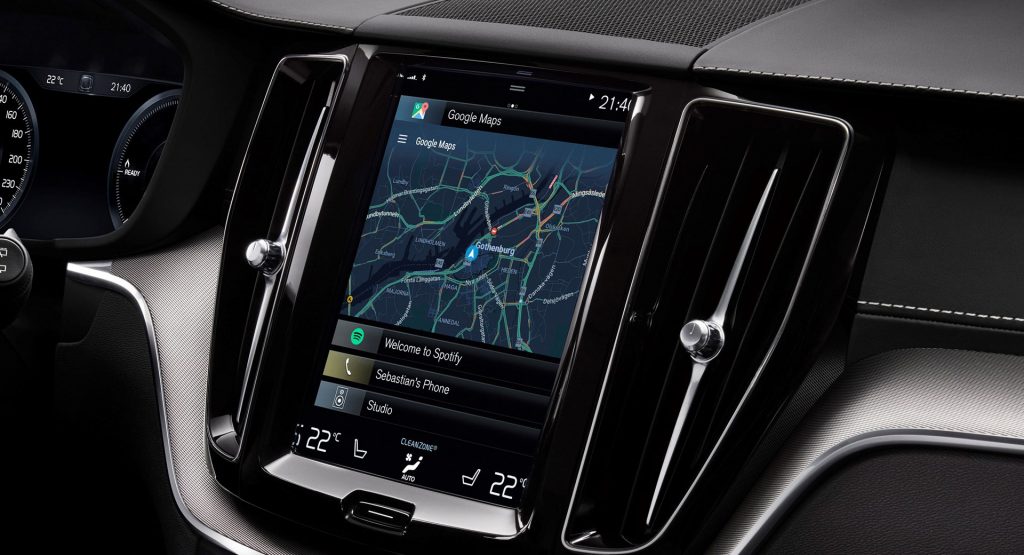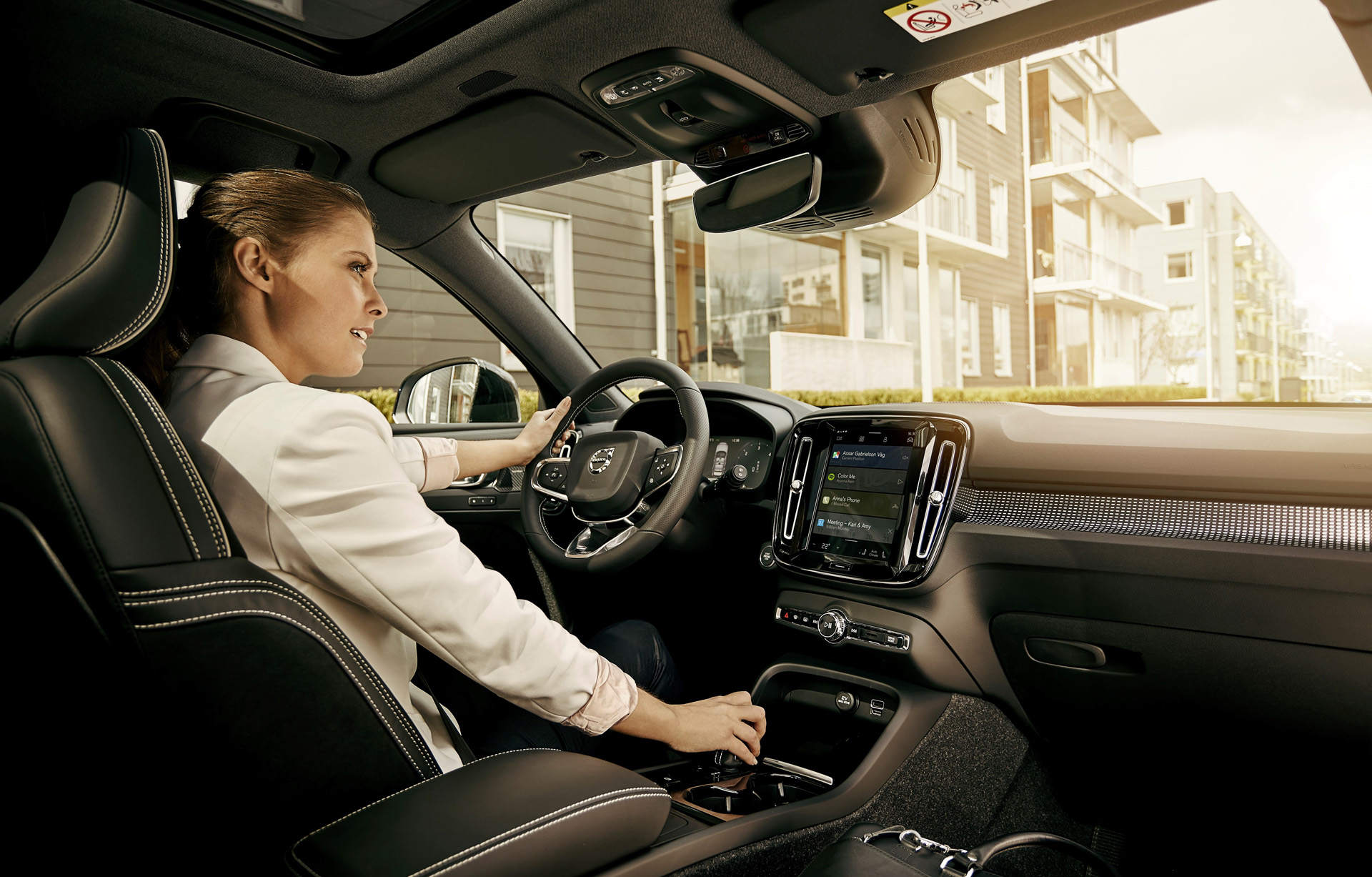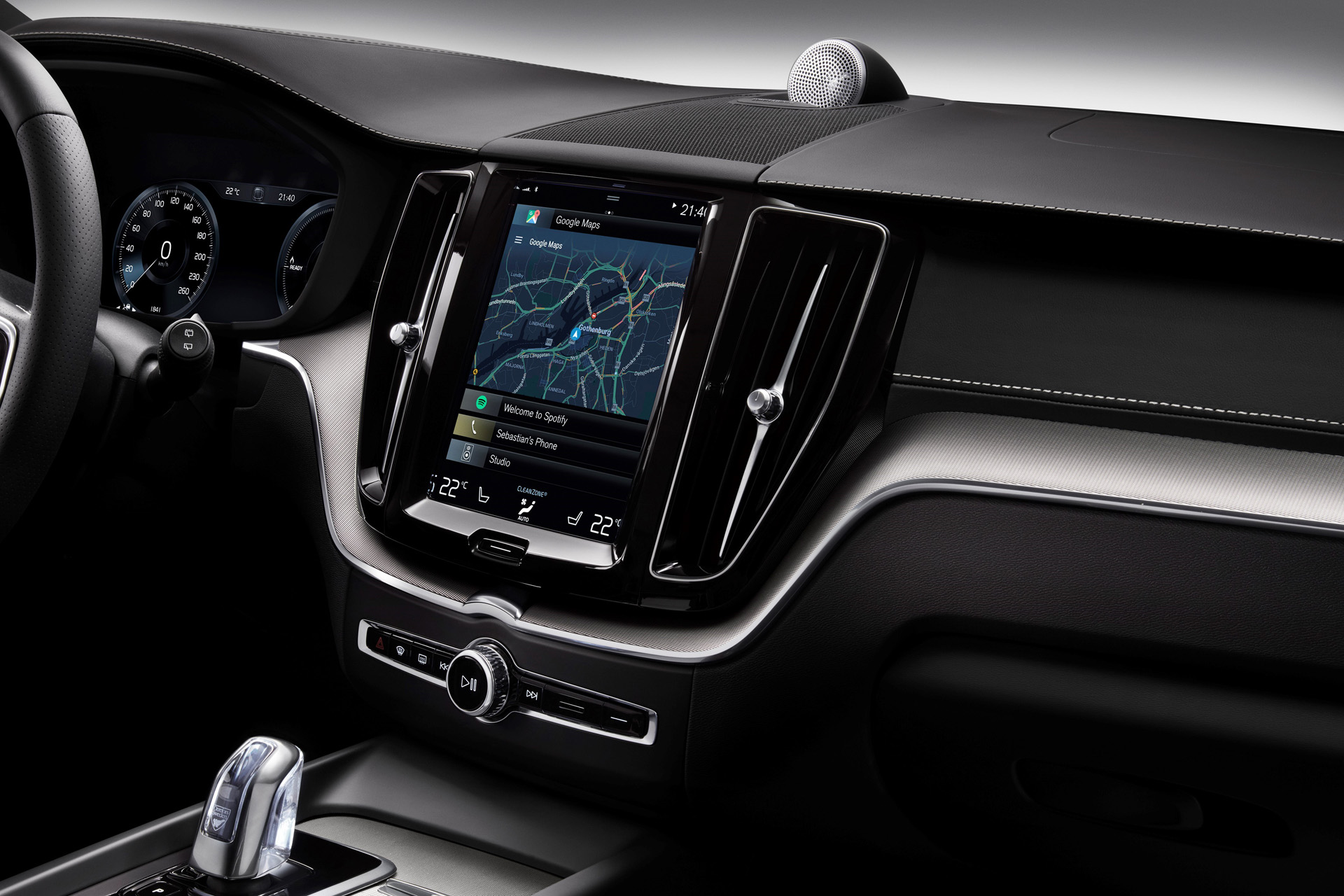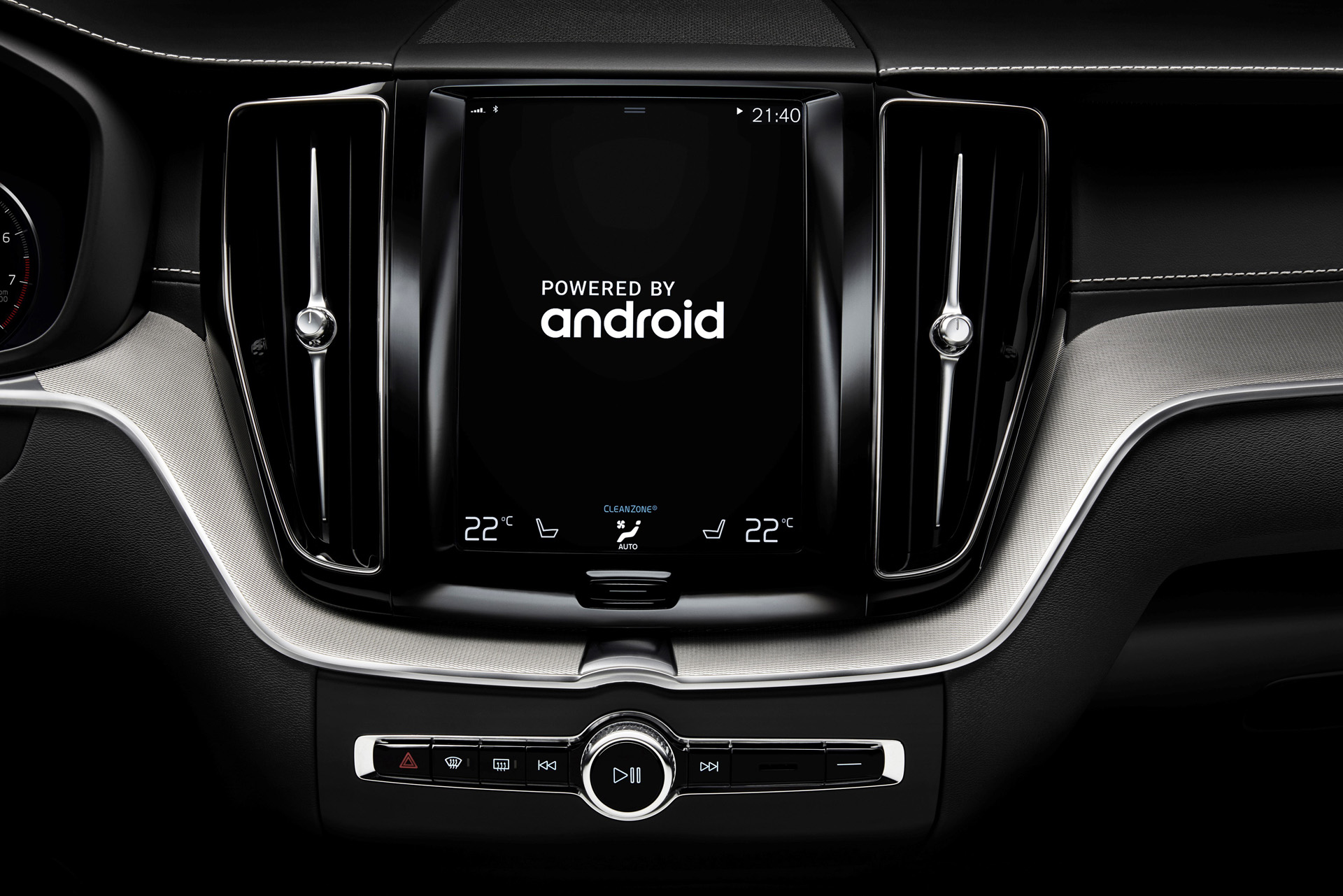Volvo took the unusual decision not to display any actual vehicles at the LA Auto Show this year, focusing instead on showcasing the technologies it’s putting into them. And one of those developments, we’re told, includes a new operating system for its infotainment interface.
Motor Trend reports that the Swedish automaker is developing a new OS with Google based on the Android system. And we bet it’ll be one of the most advanced in the industry once it’s deployed.
Details are still scarce at this point, probably more because they’re still being worked out (rather than being withheld). But from what we can tell so far, it seems the technology will stem far beyond the connectivity offered by Android Auto to build an entirely new operating system based on Google’s electronic architecture. (Remember that BlackBerry’s QNX system, which has powered so many in-car systems, has had little to do with connecting the same company’s smartphones.)
The real benefit of the system, MT was told by Google and Volvo execs at a roundtable discussion in LA, will be apps. Not just Google Maps and Spotify (though those will be handily supported), but new apps like Amazon in-car package delivery, and other new functionality that Volvo’s working on with outside partners. It’ll even enable over-the-air updates to the car’s systems – a technology that Tesla has been able to implement, but which other, mainstream automakers have had trouble getting past their dealers, eager as they are to get customers’ cars into their service centers for any updates.
The new system is expected to launch by 2020. And it won’t be just Volvos that will get it, either. The new Android-based system will reportedly be implemented on Polestar vehicles as well, and we wouldn’t be the least bit surprised to see them extending into other products under parent-company Geely’s ever-expanding umbrella – including the new Lynk & Co brand and even Lotus.
Things will get a little trickier in Geely’s home market, though, where the Chinese government places severe restrictions on connecting to the outside internet. So customers in China will have to do with iFly (instead of Google’s own voice commands) and Autonavi (instead of Google Maps).
What we can’t help but wonder, though, is what the new system will mean for iPhone users who’ve been able to connect their smartphones to their new Volvos through Apple CarPlay.






